 Somehow each year, summer solstice sneaks up on me. Sure, the days get extraordinarily long here in the Northern Rockies, and sure everything is greening up fast. I have two goat kids who are now almost four weeks old, and yeah, the warmer weather is upon us. Still, I end up feeling unprepared for the solstice.
Somehow each year, summer solstice sneaks up on me. Sure, the days get extraordinarily long here in the Northern Rockies, and sure everything is greening up fast. I have two goat kids who are now almost four weeks old, and yeah, the warmer weather is upon us. Still, I end up feeling unprepared for the solstice.
Shaking Off Skadi’s Powers
Skadi reigns much of the time here in the Northern Rockies. That being said, Thor, Freyr, Freyja, and Baldr take hold around now. I heard Thor’s voice this week, announcing his arrival. Freyr and Freyja show their might as new life appears. Animals’ offspring follow them out of thickets and dens; the forests take on a lush green. The time for renewal is at hand.
Warning: Science!
In a scientific sense, the summer solstice is simply the time when our planet’s tilt is closest to the sun. Imagine our planet is a toy top that has been set in motion. At some point in the spin, the top begins to tilt and wobble as it slows down. That is what our planet is doing right now.

We know that millions of years ago, our days were shorter because our planet was spinning faster. As our planet’s spin slows, our days grow longer by 1.8 milliseconds a century. Eventually that will add up to more noticeably longer days, but certainly not in our lifetime, nor in the lifetimes of our children, grandchildren, or even great-grandchildren.
It’s this small tilt that makes it possible for us to have four seasons. When our side of the hemisphere is tilted away from the sun, we have winter. When it is tilted toward the sun, we have summer. It is the furthest tilt that brings us the solstices.
If you don’t find it simply amazing that something so slight as a small wobble could affect life on our planet, there’s something wrong with you. That feels like magic, plain and simple, even if it is science.
Thanks to the Gods for the Solstices
I can’t help but think that these happy coincidences which brought life to flourish on our planet were part of the gods’ plans. I’m willing to accept the science, and yet, the coincidences are astonishing.
Think about it. We live on a planet that basically won the lottery when it came to supporting life. Even if you’re not a creationist-type person, you have to admit we lucked out. Our gods have set in motion an amazing world, and we are damn lucky to have it. We’re damn fortunate to be here, given all the times our species has nearly gone extinct.
Understanding the Solstices as a Threshold
The summer solstice is a threshold of sorts. I’ve heard the term “liminal” used to describe certain parts of the year. The summer solstice is the longest day of the year, but at the same time, it heralds the loss of light until the winter solstice.
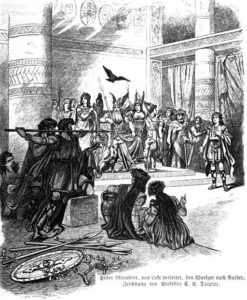 I think of the story about Baldr and Hodr. Baldr is made impervious to all things except the mistletoe. Loki gives Hodr a spear made from mistletoe and helps Hodr aim it. We think of Baldr as the sun on summer solstice. His blind brother, Hodr, is the oncoming darkness of winter. Each year, Hodr “slays” Baldr, but Baldr is eventually resurrected to shine once more.
I think of the story about Baldr and Hodr. Baldr is made impervious to all things except the mistletoe. Loki gives Hodr a spear made from mistletoe and helps Hodr aim it. We think of Baldr as the sun on summer solstice. His blind brother, Hodr, is the oncoming darkness of winter. Each year, Hodr “slays” Baldr, but Baldr is eventually resurrected to shine once more.
The solstices mark when the days are the longest, and when they are the shortest. After the summer solstice, we begin our march towards winter. The sunlight retreats until the winter solstice, when it returns again.
Celebrating the Summer Solstice
As Heathens, the solstices are our holy days. During the summer solstice, we thank the gods for the light and for our growing season. We ask for health and good harvests, even if we no longer have anything to do with farming. We celebrate our families and friends.
I find there is plenty to celebrate when it comes to the solstice. We may have dealt with some pretty shitty things in our lives, but we have to be among the living to still be here. The wonder that is our life is still amazing, and there is still plenty to learn and experience in this world.
Our Renewal with the Summer Solstice
Nowadays, people are pretty jaded when it comes to our seasons. Sure, people enjoy the warm weather, but there isn’t a lot of joy in the seasons, themselves. There certainly isn’t a lot of  wonder in them–we know what causes the seasons. At some point, people only look forward to the seasons as times for doing human activities, and not just marveling at the season, itself.
wonder in them–we know what causes the seasons. At some point, people only look forward to the seasons as times for doing human activities, and not just marveling at the season, itself.
Think about it. I doubt seriously most people sit and just meditate on summer when the summer solstice passes. You might, and maybe your heathen and pagan friends do, but most people just don’t. And yet, the summer solstice is a time for renewal. That includes renewing yourself as a heathen.
No matter how old you are, you can take part in that renewal. It can be as short as a few minutes, or as long as you feel is necessary. And yeah, it’s a type of magic, I suppose. You’re going to get in touch with the landvaetr, the gods, and the ancestors.
How to Renew Yourself During the Summer Solstice, and Beyond…
 Summer solstice is a time to thank the gods, the landvaetr, and the ancestors for everything. You may wish to have some mead or other offering to leave at your outdoor altar. If you don’t have an outdoor altar, you can choose a favorite tree outside. Whatever your offering is, be sure it is biodegradable and not poisonous to wildlife and pets.
Summer solstice is a time to thank the gods, the landvaetr, and the ancestors for everything. You may wish to have some mead or other offering to leave at your outdoor altar. If you don’t have an outdoor altar, you can choose a favorite tree outside. Whatever your offering is, be sure it is biodegradable and not poisonous to wildlife and pets.
- Start by sitting comfortably outside, preferably in a forest, park, or other place within nature. You can sit in a chair, on a bench, on a rock or log, or even on the ground, if you so choose. Close your eyes, or keep your eyes open. Doesn’t matter.
- Take deep breaths through your nose, and exhale through your mouth. Let your mind still as you breath in this fashion, and focus on relaxing each muscle group as you do.
- As you relax, you may notice your environment. Is it hot and sunny, or is it cool? Is there a breeze? What does the air feel like? What about where you are sitting? Are you comfortable, or do you feel uncomfortable because the ground is wet, insects are buzzing around you, or something is poking you in the butt?
- What do you smell on the breeze? Sure, you may get the smells of the city, but can you smell the flowers nearby? What do the trees smell like? Do you get an earthy scent from the moss and wet ground nearby? Does the air have a taste? Acrid from the city, or does it taste like the flowers nearby? Sharp like a pine tree? Woodsy like an oak tree?
- What do you hear? Sure, you may hear traffic and people, but is there a bird singing nearby? What does the leaves sound like when the breeze rustles through it? Do you hear the snort of a deer, or maybe the barking of a dog? Maybe the chittering of a squirrel.
- Open your eyes, if they aren’t already open. What do you see? Try to not take in everything, but focus on something natural: a flower, a tree, a river or stream, a mountain top, or maybe the ocean. Some may be too big or too small to focus on. That’s okay. Just move from one natural thing to another, if you’re not focusing.
- Look up and Sunna and thank her for the warmth of the first day of summer. Thank Baldr for the beauty of the sun at summer solstice. Thank Mani for the solstice moon.
- Thank Freyr and Freyja for the new life around you, whether it’s animals, plants, or even human babies.
- Thank Thor and Sif for the rains and the harvest that is to come. Ask for our farmers’ prosperity and a bountiful harvest.
- Thank whichever gods you wish to honor at this time.
- Thank the landvaetr for their tireless care over the land you sit on.
- Thank your ancestors, for without them, there would be no you to enjoy the moment.
- Pour an offering (or leave an offering) on your outdoor altar, or at the place you designated.
- Spend as much time as you’d like (or as much time as you’re permitted) enjoying the solstice.
Other Fun Ways to Celebrate the Solstice
I have another post on Five Ways Heathens can Celebrate the Summer Solstice. Check it out.
—
Thank you Sarra Keene for your support on Patreon. Without you, I would have a hard time keeping this blog going!
Did you know you can become my patron for as little as $5 a month? This entitles you to content not posted anywhere else. Plus you get to see posts like this three days before the public! Without patrons, I’d be having a very hard time keeping this blog going. Become a patron today! Become a Patron!
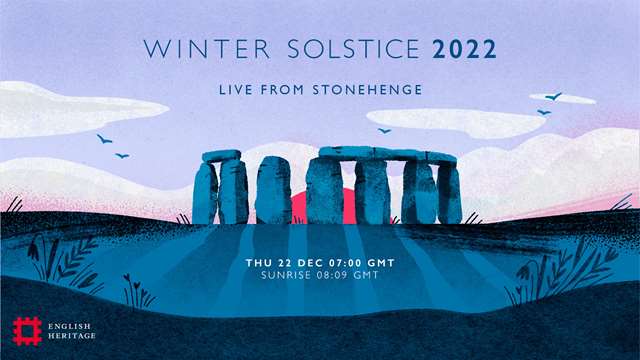
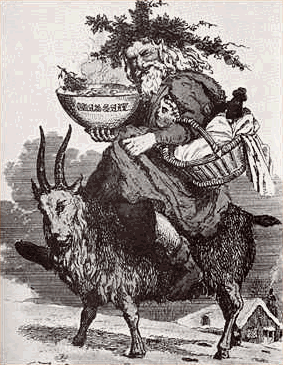
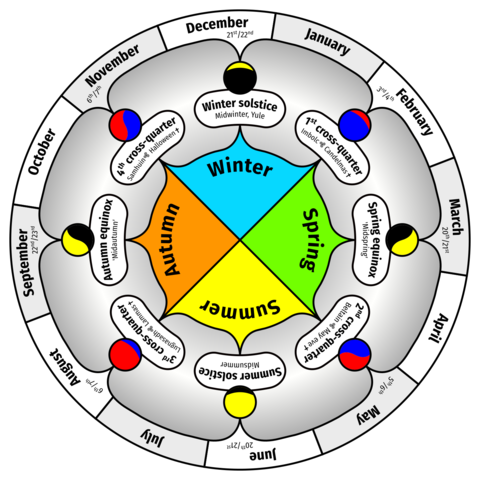
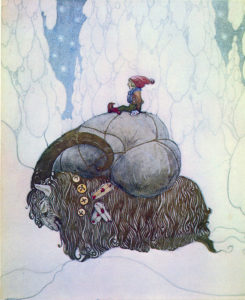 I had been meaning to write about Ýlir for some time, but life and everything has gotten in my way (blah, blah, blah, excuses, excuses). So, I’m looking at the end of Ýlir and wondering if I can pull off a post before Yule.
I had been meaning to write about Ýlir for some time, but life and everything has gotten in my way (blah, blah, blah, excuses, excuses). So, I’m looking at the end of Ýlir and wondering if I can pull off a post before Yule. 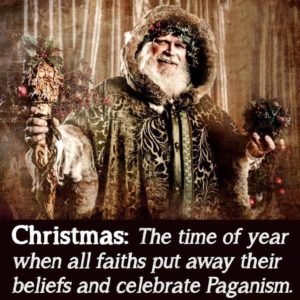 It seems a number of websites have different opinions on Ýlir and Yule. Some sources claim that Ýlir gets
It seems a number of websites have different opinions on Ýlir and Yule. Some sources claim that Ýlir gets 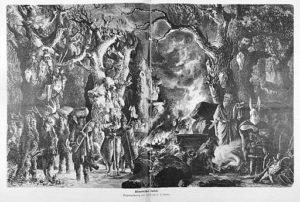 Now that we’ve beaten a dead etymological horse, let’s look at Yule. In many cases Norse and Germanic pagans held feasts that lasted twelve days and included the solstice. As I mentioned in my last post, land owners and nobles
Now that we’ve beaten a dead etymological horse, let’s look at Yule. In many cases Norse and Germanic pagans held feasts that lasted twelve days and included the solstice. As I mentioned in my last post, land owners and nobles 
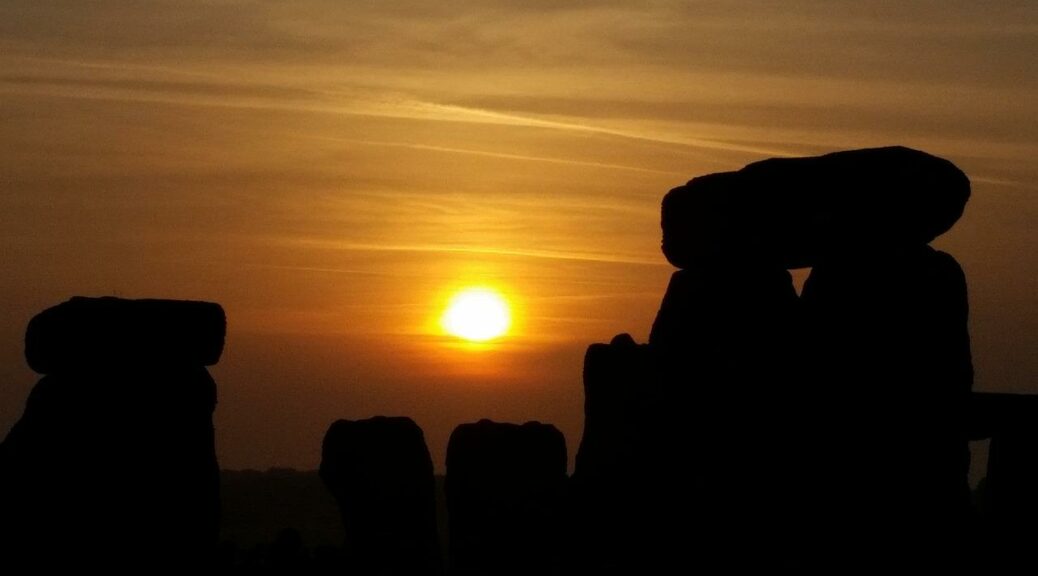
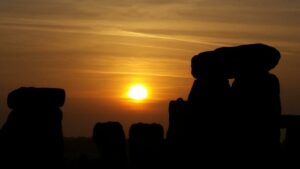 Exhausted. You wouldn’t think that the summer solstice would cause me to become exhausted, but the reality is there’s too much to do now that summer is striding towards us. I can feel its touch, even though the relentless rains are turning everything into a lush, green carpet.
Exhausted. You wouldn’t think that the summer solstice would cause me to become exhausted, but the reality is there’s too much to do now that summer is striding towards us. I can feel its touch, even though the relentless rains are turning everything into a lush, green carpet.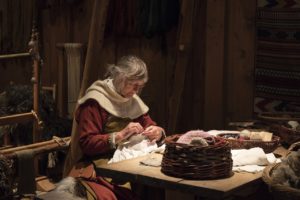 Summer solstice is the longest day of the year, and the daylight will give into night bit by bit after the solstice passes. The days will shorten again, but the hottest days are still to come. Sometime around July 1st, the rains will stop and the land will dry out. We won’t see much rain until September.
Summer solstice is the longest day of the year, and the daylight will give into night bit by bit after the solstice passes. The days will shorten again, but the hottest days are still to come. Sometime around July 1st, the rains will stop and the land will dry out. We won’t see much rain until September.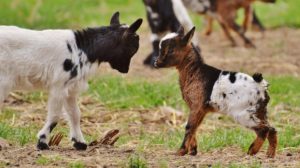 One pagan whose blog I’ve read said that summer solstice is a time to pause, because the crops have already been sown and the harvest isn’t until fall. Ah, but that is only part of the summer. Work isn’t done especially during summer. It’s a preparation for the cold nights ahead. Berries and edibles need foraging. Dairy animals need milking. Cheese needs to be made. Young animals need caring for.
One pagan whose blog I’ve read said that summer solstice is a time to pause, because the crops have already been sown and the harvest isn’t until fall. Ah, but that is only part of the summer. Work isn’t done especially during summer. It’s a preparation for the cold nights ahead. Berries and edibles need foraging. Dairy animals need milking. Cheese needs to be made. Young animals need caring for.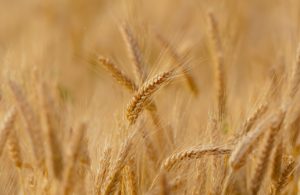
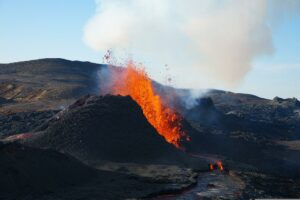
 I have pointed out quite a bit how
I have pointed out quite a bit how 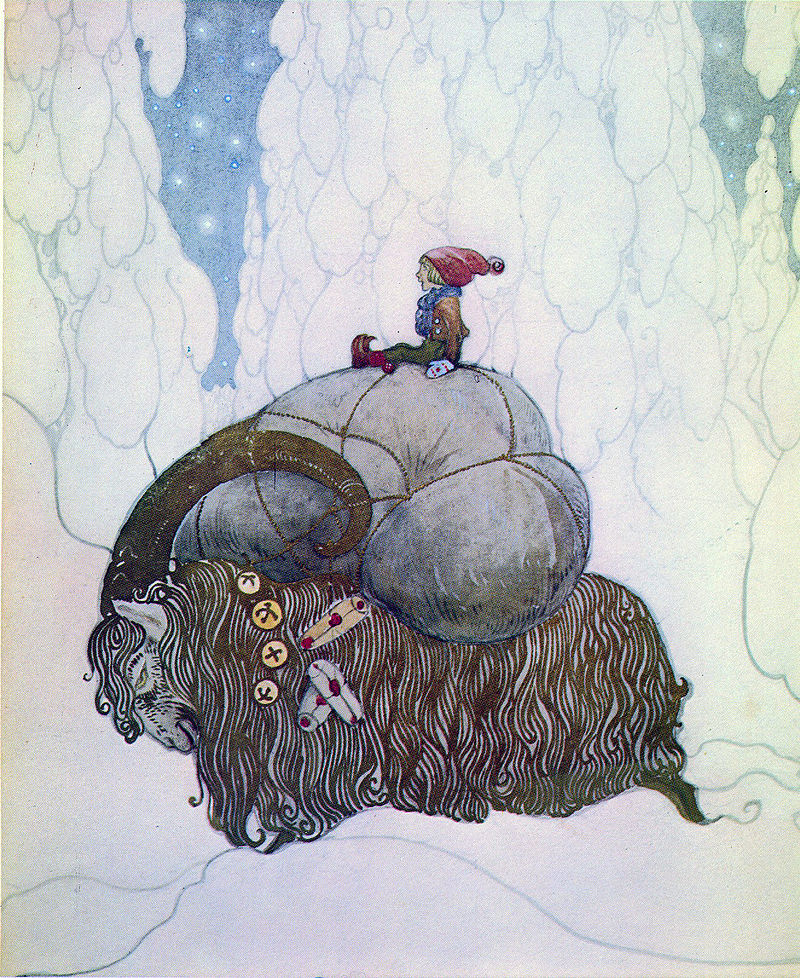
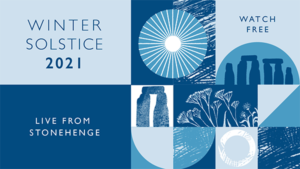
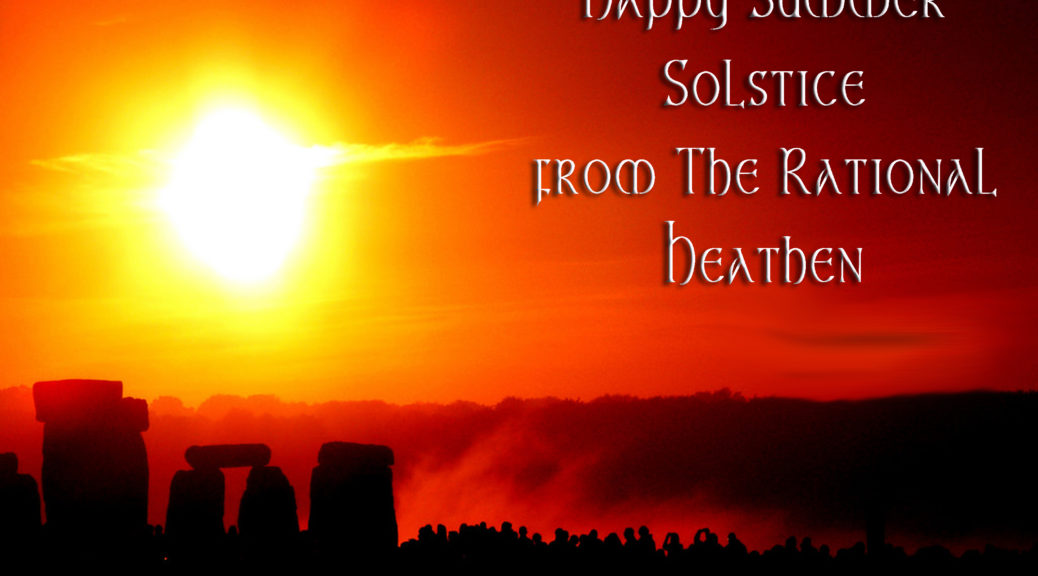
 Somehow each year, summer solstice sneaks up on me. Sure, the days get extraordinarily long here in the Northern Rockies, and sure everything is greening up fast. I have two goat kids who are now almost four weeks old, and yeah, the warmer weather is upon us. Still, I end up feeling unprepared for the solstice.
Somehow each year, summer solstice sneaks up on me. Sure, the days get extraordinarily long here in the Northern Rockies, and sure everything is greening up fast. I have two goat kids who are now almost four weeks old, and yeah, the warmer weather is upon us. Still, I end up feeling unprepared for the solstice.
 wonder in them–we know what causes the seasons. At some point, people only look forward to the seasons as times for doing human activities, and not just marveling at the season, itself.
wonder in them–we know what causes the seasons. At some point, people only look forward to the seasons as times for doing human activities, and not just marveling at the season, itself. Summer solstice is a time to thank the gods, the landvaetr, and the ancestors for everything. You may wish to have some mead or other offering to leave at your outdoor altar. If you don’t have an outdoor altar, you can choose a favorite tree outside. Whatever your offering is, be sure it is biodegradable and not poisonous to wildlife and pets.
Summer solstice is a time to thank the gods, the landvaetr, and the ancestors for everything. You may wish to have some mead or other offering to leave at your outdoor altar. If you don’t have an outdoor altar, you can choose a favorite tree outside. Whatever your offering is, be sure it is biodegradable and not poisonous to wildlife and pets. Okay, this is for those early birds who can get up and greet the new day. Or, for those of us who are night owls, who stay up long enough to see dawn break. The rest of you mere mortals will probably be a bit bleary-eyed for this. Even so, prepare a blot and offer it to Sunna, the wights, the ancestors, and to the gods and goddesses of summer.
Okay, this is for those early birds who can get up and greet the new day. Or, for those of us who are night owls, who stay up long enough to see dawn break. The rest of you mere mortals will probably be a bit bleary-eyed for this. Even so, prepare a blot and offer it to Sunna, the wights, the ancestors, and to the gods and goddesses of summer.
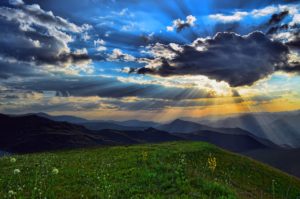 The best way to celebrate the summer solstice is to get outdoors and do something that helps you enjoy the long daylight. This includes simple things like taking a walk, going hiking, going fishing, or doing some type of activity that involves getting outdoors. With COVID-19, remember to keep your distance from people who are not in your household, and to wear masks if you’re heading somewhere people are present.
The best way to celebrate the summer solstice is to get outdoors and do something that helps you enjoy the long daylight. This includes simple things like taking a walk, going hiking, going fishing, or doing some type of activity that involves getting outdoors. With COVID-19, remember to keep your distance from people who are not in your household, and to wear masks if you’re heading somewhere people are present.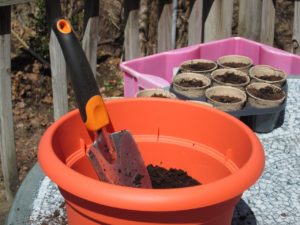 You do have a garden, don’t you? Even if it’s only a few herb pots or flowers, give them extra care today. Summer solstice is the longest day of the year when photosynthesis is at its peak due to all that sun. Even if it’s cloudy, the daylight provides extra time for growth.
You do have a garden, don’t you? Even if it’s only a few herb pots or flowers, give them extra care today. Summer solstice is the longest day of the year when photosynthesis is at its peak due to all that sun. Even if it’s cloudy, the daylight provides extra time for growth.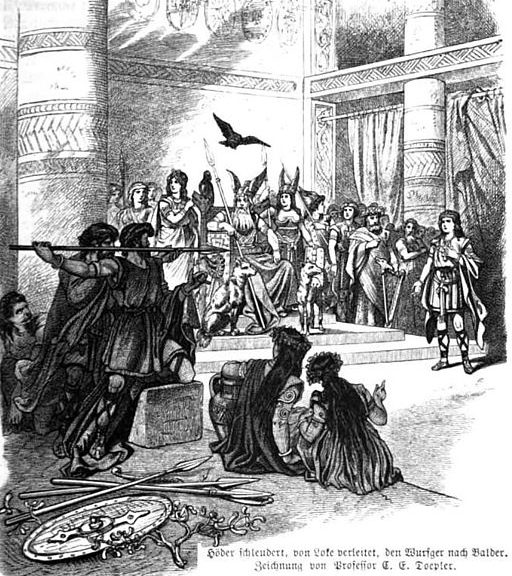
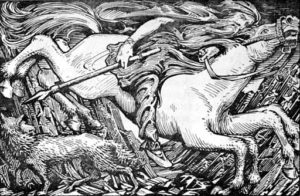 Baldr had nightmares of his death. Odin therefore went to Niflheim to consult a dead seeress to find out what was the cause of Baldr’s nightmares. The seeress told Odin that that Baldr would die by Hodr’s hand (Hodr is the brother of Baldr).
Baldr had nightmares of his death. Odin therefore went to Niflheim to consult a dead seeress to find out what was the cause of Baldr’s nightmares. The seeress told Odin that that Baldr would die by Hodr’s hand (Hodr is the brother of Baldr).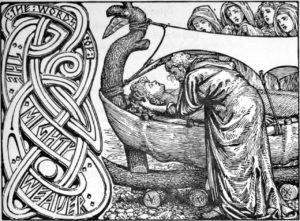 was not throwing things. Loki offered to guide Hodr’s hand so he could throw something. He put the mistletoe into Hodr’s hand. Hodr threw and the dart pierced Baldr’s heart. Baldr fell dead.
was not throwing things. Loki offered to guide Hodr’s hand so he could throw something. He put the mistletoe into Hodr’s hand. Hodr threw and the dart pierced Baldr’s heart. Baldr fell dead.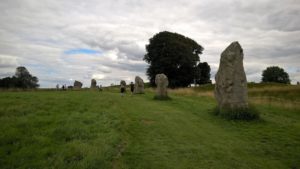 The story of Baldr is the story of the seasons and the natural cycle of life. Our northern ancestors revered the sun and its life-giving heat and warmth. We know the summer solstice was a holy time for northern pagans — especially those who built monuments to the sun during the neolithic age. Baldr is clearly associated with the midsummer sun — the sun at solstice. It is no surprise that his blind brother, Hodr (winter) slays him with the help of Loki (who is a chaos god) which brings about renewal (Ragnarok). Baldr is the renewal of life and all the beauty associated with it. Hodr is the old age and the impending death. Loki (chaos and entropy) brings these changes about.
The story of Baldr is the story of the seasons and the natural cycle of life. Our northern ancestors revered the sun and its life-giving heat and warmth. We know the summer solstice was a holy time for northern pagans — especially those who built monuments to the sun during the neolithic age. Baldr is clearly associated with the midsummer sun — the sun at solstice. It is no surprise that his blind brother, Hodr (winter) slays him with the help of Loki (who is a chaos god) which brings about renewal (Ragnarok). Baldr is the renewal of life and all the beauty associated with it. Hodr is the old age and the impending death. Loki (chaos and entropy) brings these changes about.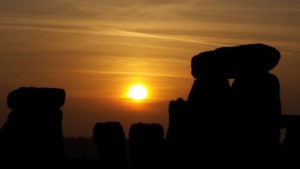
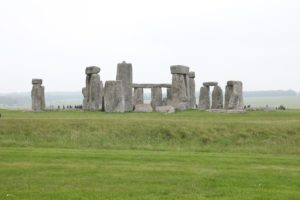 It’s little wonder why the mistletoe is a symbol of the winter solstice, since it is the symbol of Baldr’s death. But the winter solstice is also the symbol of the return of life. We know that the days will grow longer again after December 21st, just as we know the days will start to grow shorter after June 21st. So, this summer solstice, raise a horn or glass of mead to the god of rebirth and renewal. Because we know that Baldr may “die” with the oncoming winter, but he will be reborn once again. (And the Christians thought that they were the only ones with a god who dies and is reborn?)
It’s little wonder why the mistletoe is a symbol of the winter solstice, since it is the symbol of Baldr’s death. But the winter solstice is also the symbol of the return of life. We know that the days will grow longer again after December 21st, just as we know the days will start to grow shorter after June 21st. So, this summer solstice, raise a horn or glass of mead to the god of rebirth and renewal. Because we know that Baldr may “die” with the oncoming winter, but he will be reborn once again. (And the Christians thought that they were the only ones with a god who dies and is reborn?)